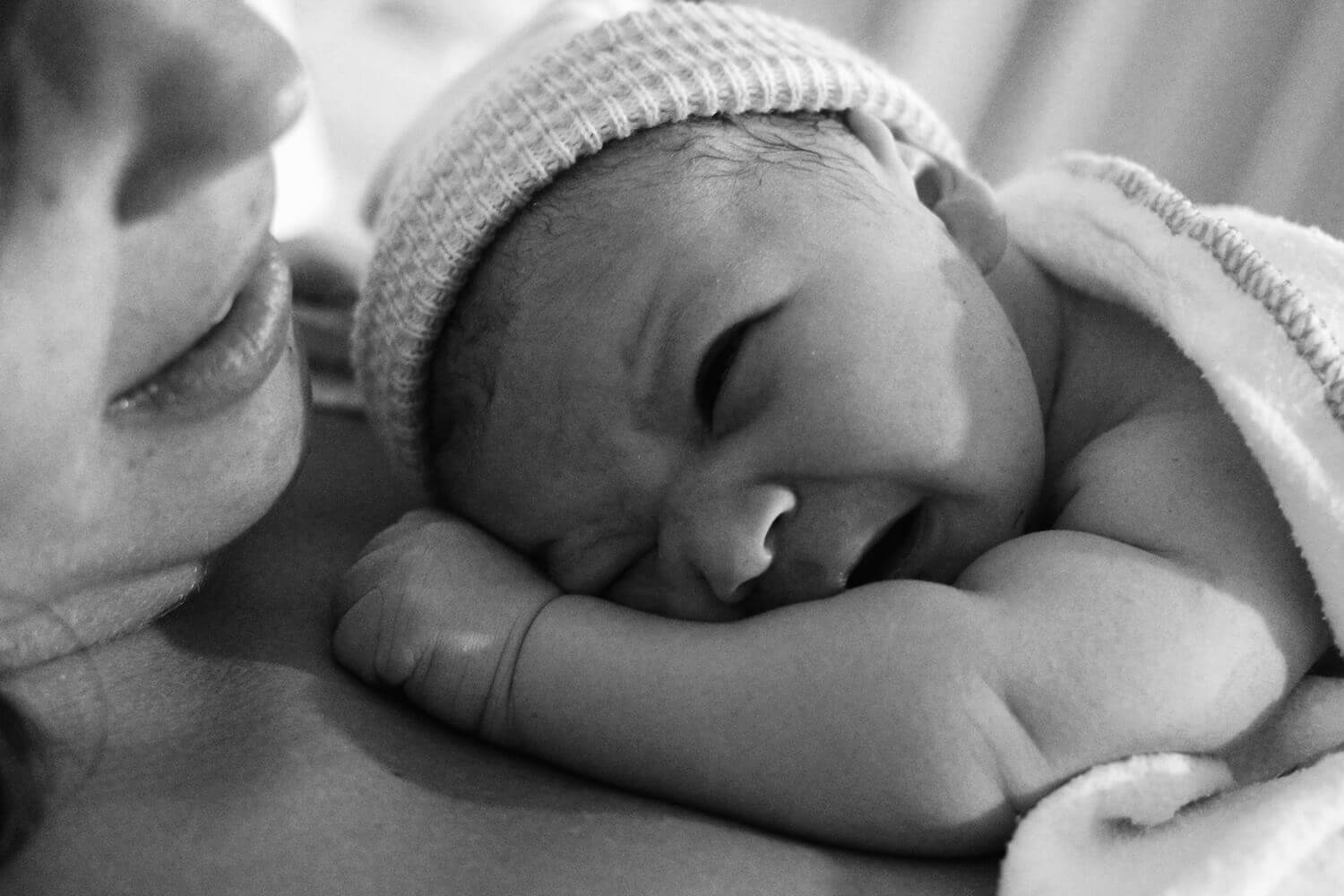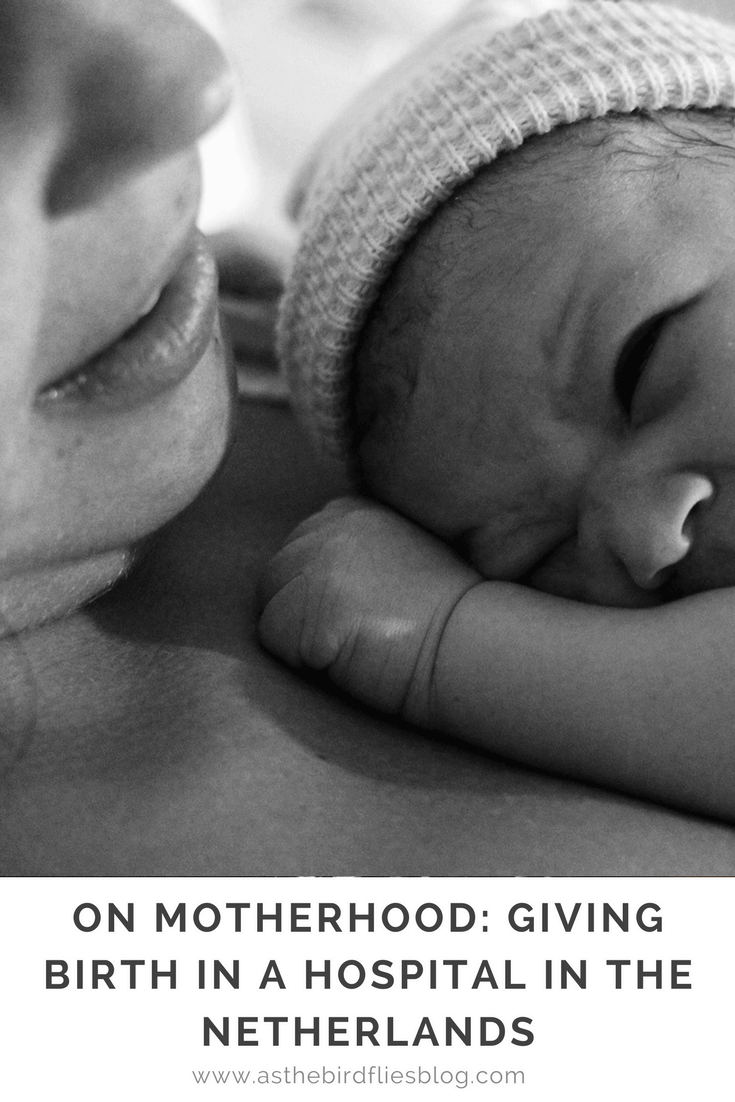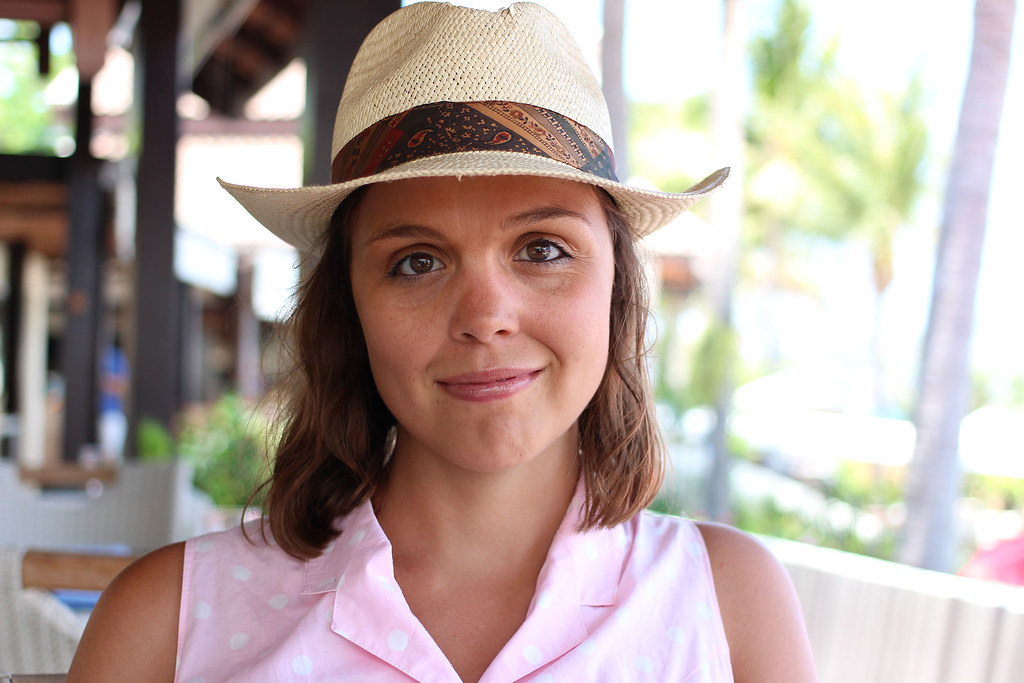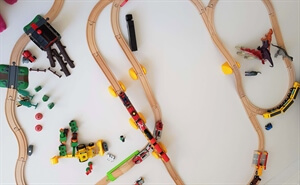Having a Baby in Amsterdam: Giving birth in hospital in the Netherlands

If you've read the story of giving birth to my son (you'll find part one here and part two is here) you'll have a rough idea of what giving birth is like in the Netherlands and these are definitely the posts to read if you want a narrative and mostly chronological account of my experience having a baby in Amsterdam. Meanwhile this post, I hope, will deal with more practical things, including some tips and advice, for giving birth in a Dutch hospital, based on both my expectations and the reality. (In addition to reading my son's birth story, you may also want to read this post about what my experience of midwives and antenatal care was like here in Amsterdam.)
What I expected from giving birth in a hospital in the Netherlands
With the Western world's highest rate for home births you could be forgiven for having some concerns about what giving birth in hospital in the Netherlands is really like (drugs? Anyone? Anywhere?) and my first expectation was one of great trepidation. Considering you don't really step foot in a hospital until the moment you are about to give birth, and such a big distinction is made between the midwives that have a cosy clinic on a street corner (where you go for your antenatal check-ups) and the hospital midwives who I assumed only really dealt with births with serious complications, I was quite intimidated by the prospect of giving birth in a Dutch hospital. I'd heard about epidurals being refused because either the anesthetist has gone home early or a midwife decides you don't need it. I'd heard about mums being expected to walk out of the hospital two hours after delivering the placenta. I'd heard about birthing pools being rare and a sheer case of luck if you managed to get access to one. I'd heard about how going from a midwife team you know and are familiar with to being left with hospital midwives could be quite upsetting. I'd also read several stories (not only from the Netherlands) about going to hospital slowing down labour because women feel more fear and less relaxed away from your home environment. That was a main reason why I began to lean towards a home birth during my pregnancy, though my partner had some serious discomfort with this and after discussing it with him at length, and learning that my boy was measuring rather large in utero, we agreed a hospital birth would be the best decision for our first baby.
Even with that decided I still had two main worries about birthing in a Dutch hospital; 1) that I wouldn't get medication even if I asked for it, and 2) I wouldn't be allowed to stay in hospital after my baby was born (unless I had any complications).
What it was really like to give birth in a hospital in the Netherlands
If you've read my son's birth story, you'll know that my labour was very long and progressed very slowly for the first 24 - 30 hours. I began having regular contractions late on a Friday night, and they sped up to 3-4 minutes apart by Saturday lunchtime but shortly after they slowed again. Late on Saturday night they started up again with even more force and fierceness and I was awake and dealing with them through breathing and groaning throughout the early hours, but by 10am on Sunday morning I had barely dilated to 2cm. Having not had more than six hours sleep since Thursday night, my midwife who had been making regular home visits throughout my labour was very concerned about my energy levels and so she suggested we go to hospital to get some help and to speed up the labour.
In so many ways, this narrative was a million miles from both my birth plan (if you are stupid enough to have one!) and my expectations of what going to hospital would be like. I imagined only going to hospital when I was a few hours away from pushing. I never expected my (yoga-loving, attachment-parenting-pro, acupuncturist) Dutch midwife would actually advise me to go to hospital to GET THE DRUGS. But that's what happened.
It also evolved that the thing I'd dreaded most about being in hospital - my labour slowing down - also didn't happen. In fact, even before a drop of any drug had gotten into my system, I began dilating more quickly in the first hour of being in hospital and by the time we were in a private room (that was HUGE!) after a slightly bumpy and sweary taxi ride, I had dilated to nearly 4cm. This was around midday.
So far so good. Yes, I was in pain, and yes being strapped up to the heart rate monitor for my son was agony as I couldn't try and move my way through contractions, but I honestly think the reason my labour progressed so much quicker in those few hours was because I felt safe. I had a kind nurse rearranging pillows behind my back. The obstetrician had a very kind smile and warm eyes as she explained my options to me. And despite hearing that my antenatal midwife would have to hand over to hospital staff once I was checked in, Inge actually stayed for around three hours after I was checked in just to keep an eye on me and settle me in.
But then came the kicker. All along I'd resisted the idea of an epidural (for many reasons) but after such slow progress and lots of talking with Inge and my partner, I rocked up at hospital at peace with the idea of getting one to help me out.
"I'm very sorry but the anesthetist is not available to give you an epidural. He's currently in an operation." The obstetrician told me with one of her kind smiles.
Oh.
So this was the one thing that I had heard rumours about that seemed to be true. Epidurals are only available if an anesthetist is available, which I suspect would also be true in other countries.
"Will he be available soon?" I asked.
"Probably not. He'll probably go home after the operation." She said looking at the clock.
Oh.
So there was that.
And thus I felt I had to consider other options (well, drugs) and in the end was hooked up to morphine pretty quickly. It was far from an ideal situation (as it can make the baby drowsy) but I knew I needed some help to get me through the contractions while conserving my energy so I could push my boy out.
This lasted about forty-five minutes until the obstetrician returned with paperwork and another kind smile.
"The anesthetist is on his way... We're going to give you your epidural."
Turns out he didn't have something in the oven to rush home to quite so quickly. Or maybe the thing is my oven was a bit more important.
The epidural all happened very quickly, and surprisingly comfortably, and I really can't fault the professionalism or manner of all the hospital staff I met and encountered that day in hospital (I was at the OLVG hospital in Amsterdam Oost). From the jolly porter who whisked me up to the maternity ward to the nurse who plumped up those pillows and cheered me on through a long hour and a half of pushing, I couldn't have felt more supported or cared for, and I'm convinced it was this that actually progressed my labour just as much, if not more than the drugs I took.
And did we have to get out as soon as I was cleaned up?
No, not at all. My son was born just before 9pm, and my placenta was delivered without complication shortly after. Then a nurse showed me how to encourage my son to latch a few times, following which we were left alone for well over an hour for skin-on-skin cuddles and quiet time. Eventually a maternity nurse came in to weigh our son and do those first checks. She also helped my partner put a nappy and clothes on our boy. Then we each had more cuddles as our boy drifted in and out of sleep. We also took a little time to message friends and family with the happy news. Some time towards midnight a new nurse who had just started her shift came in to introduce herself and she asked if we wanted to make up the couch in the room as a bed for my partner.
By this point we'd already decided to home. I don't know if it was because I'd mentally already prepared myself to leave the hospital immediately after giving birth, or if I was riding a big wave of adrenaline still (possibly both!) but I wanted to be in my own bed, eating one of the meals I'd pre-made and frozen especially for this occasion. We knew that our maternity nurse was coming first thing in the morning so we didn't feel daunted by half a night on our own. After telling the nurse this, she said I needed to shower and also pass urine before I could go, which I did without too much drama (though very little grace!) and shortly after one o'clock in the morning we were getting ready to leave with our son strapped into his car seat.
Things worth knowing about giving birth in a Dutch hospital
As with all hospitals in all countries, every experience will be different. I've had chats with other mothers who gave birth in the same hospital I did (OLVG in Oost Amsterdam) and they had a very different experience (sadly, not as positive) so there's a lot of luck involved with how any birthing experience plays out.
Drugs definitely are available in Dutch hospitals. I took a photo of my chart (writing on a white board outlining treatments given and my progress at certain times) and it was very eye-opening. Not only did I have the morphine based drug and epidural that I was aware of but I was also administered Synotocin during the time I was pushing. This is an artificial hormone that is given to speed up or keep labour going. This wasn't discussed with me (that I can remember!) and I was quite surprised to discover I'd been given it after I'd been told repeatedly how reluctant the Dutch are to give drugs to labouring women. It's my mistake that I didn't discuss this with my midwife or Kraamzorg nurse (which is definitely encouraged, by the way!) so I can't tell you why this happened but it does go some way to reverse the stereotypical image of birthing mothers being refused drugs.
Also I would like to add that I was in hospital giving birth on a Sunday afternoon and evening so it's also not true that Dutch anesthetists only work typical office hours meaning you'll not be allowed an epidural or other meds at weekends or overnight. As you read above, it was my experience that if there is an anesthetist on duty and they're available and it's medically appropriate you will get the pain relief you request.
If you give birth in a Dutch hospital you do not need to bring anything from the "kraampaket" your insurance company sends you because the hospital will provide everything that you need. You only need to bring those items you pack in a typical hospital bag (clothes for baby, you, etc).
As referred to above, you are permitted to go home as soon as you have had a shower, had a pee and of course, you've been checked over by a midwife or nurse. As we really wanted to go home we did. However, because I gave birth late at night (and the hospital wasn't busy) they did give us the option of staying overnight. This was refreshing and contradicted the rumours I'd heard about getting kicked out two hours after the placenta is out. Again, I think this was mostly due to luck because if the ward is busy you may not get so lucky.
If you give birth in a Dutch hospital and you stay over night you will begin your Kraamzorg care in the hospital. There are always Kraamzorg nurses assigned to wards and they may also be present for the birth to assist the midwife. You are entitled to up to seven days of Kraamzorg so the clock starts the day or day after you give birth (depending on what time of day it happens!).
Be very direct when talking to your medical professionals. This is the Dutch way to communicate in general - and especially when it matters! - and they will appreciate being told "I have pain here or there" rather than you putting on a brave face and saying you feel a bit unwell but you don't want to make a fuss.
Most medical professionals will speak English, but do not expect this, especially in hospitals outside of Dutch cities. While you are giving birth the language you scream, moan, cry and shout in doesn't matter, there were times when I wished I knew more Dutch so I knew what people were discussing around me. That's just the way I am - naturally curious (and nosey!) but of course when it comes to your own medical care this is kind of important. You may want to focus on learning some key Dutch words to prepare you for some of the terms you may hear, or have someone with you who can translate. In Amsterdam there are lots of private doulas who play this role as well as offering support during labour. Needless to say, our experience in an Amsterdam hospital was that we spoke English with all the medical professionals we had dealings with, though one of my nurses didn't speak very much but weirdly her soothing Dutch words that I only vaguely understood was the most comforting to me!
Dutch hospitals expect you to have a car-seat ready for your child (it's universally called a "Maxi Cosi" in the Netherlands regardless of the brand!) to leave the hospital in, no matter how you actually plan on leaving the hospital.
Don't worry about your birth plan but do speak your mind. Ultimately once I was in hospital my birth plan was just a piece of paper buried at the bottom of my bag because the hospital staff sort of take over your care, especially if you take medication or need to be monitored for any other reason. If you are very determined to have certain things or avoid certain treatments then be very clear about this - unless these decisions are of course taken out of your hands for medical reasons. Again this is another good reason to consider having a doula who can act as an advocate for you, and it's definitely something I'm considering should I give birth again.
There was a birthing pool in our ward and you can make a request for it providing you or your baby doesn't need monitoring (and it's available!). I didn't get to see the pool but I've heard from other mothers who gave birth in water in Dutch hospitals that it was a very pleasant experience.
Generally speaking, there is no gas and air (or "laughing gas" as it's called here) in Dutch maternity wards (as of the time of writing). I've heard different possible reasons why but I know that it's available in private birthing "hotels" (which you can read a bit more about in this post) but if you're from the UK where nearly all mothers swear by gas and air, you should know it's generally not available. It is available in so-called Birth Hotels and in some birthing centres in Amsterdam, and I've heard rumours it will become more widely used but as a general rule do not expect to have it.
Giving birth in a hospital is not free. But it's also pretty cheap. compared to nearly all other Western countries where you have to pay. Because the Dutch system and psyche is set up to encourage home births, if there is not a medical reason for you to give birth in hospital but you choose to do so (which is 100% permitted and acceptable - and very normal especially for first time births!) then you will need to pay a nominal amount towards your stay, or you will need to have insurance that covers this cost. You can nearly always choose to have a level of insurance that covers all the costs of peri-natal care and this will normally cover the cost of an elective hospital stay. In 2015 when I gave birth the cost was around 350 Euros and I believe it has gone up slightly since then. Your midwife or insurance company will be able to tell you the cost and it's possible (depending on your level of insurance) that your policy also has this covered. (It's also very important that you inform your insurance company that you are pregnant!)


Frances M. Thompson
Londoner turned wanderer, Frankie is an author, freelance writer and blogger. Currently based in Amsterdam, Frankie was nomadic for two years before starting a family with her Australian partner. Frankie is the author of three short story collections, and is a freelance writer for travel and creative brands. In 2017, she launched WriteNOW Cards, affirmation cards for writers that help build a productive and positive writing practice. When not writing contemporary fiction, Frankie shops for vintage clothes, dances to 70s disco music and chases her two young sons around Amsterdam.
Find Frankie on Facebook, Twitter, Instagram, Pinterest, and Google+.
Find Frankie on Facebook, Twitter, Instagram, Pinterest, and Google+.
 Family Travel: How to Travel with Kids - My Golden Rules
Family Travel: How to Travel with Kids - My Golden Rules Self-Love: Self-Care Activities for Kids
Self-Love: Self-Care Activities for Kids Self-Love: In-Depth Guide to Self-Care for Kids
Self-Love: In-Depth Guide to Self-Care for Kids Books I Love: Five Kids Books That Make Us All Happy
Books I Love: Five Kids Books That Make Us All Happy Family Life: The Best Timeless Toys My Kids Play with ALL THE TIME
Family Life: The Best Timeless Toys My Kids Play with ALL THE TIME About the Blog & Frankie
About the Blog & Frankie Welcome to My Amsterdam Travel Blog!
Welcome to My Amsterdam Travel Blog! Welcome to My Luxury Family Travel Blog!
Welcome to My Luxury Family Travel Blog! Welcome to My Writing Blog!
Welcome to My Writing Blog! Lover Mother Other: Poems - Out Now!
Lover Mother Other: Poems - Out Now! I Write Stories That Move You
I Write Stories That Move You Order WriteNOW Cards - Affirmation Cards for Writers
Order WriteNOW Cards - Affirmation Cards for Writers Work With Me
Work With Me